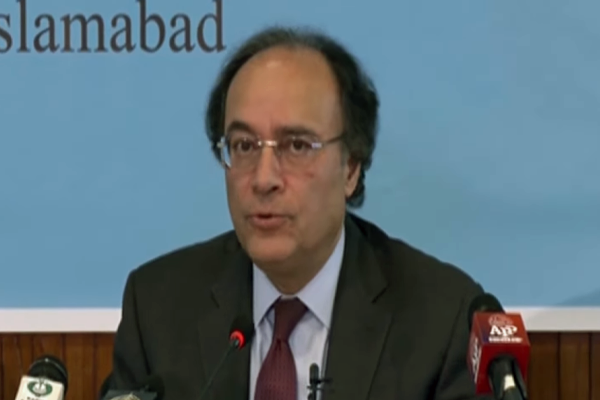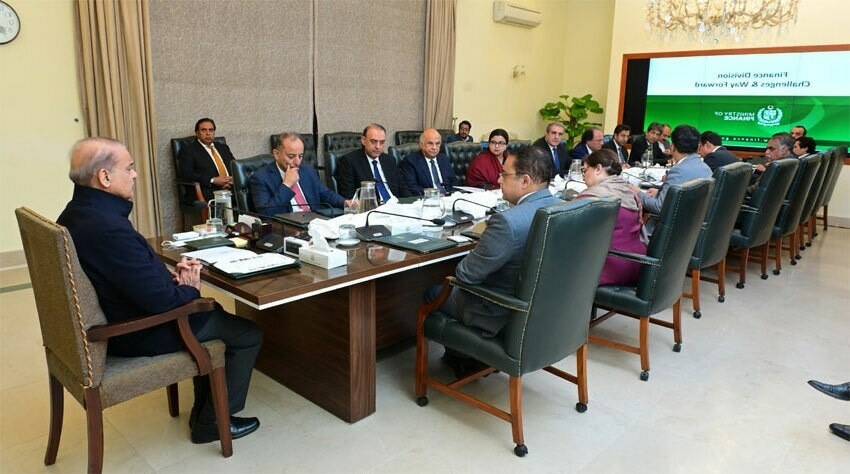Federal Minister for Finance Muhammad Aurangzeb has announced that China will support Pakistan’s ongoing negotiations with the International Monetary Fund (IMF), playing a crucial role in securing the IMF board’s approval for a new bailout package. Addressing a news conference on Sunday after his visit to China, the minister elaborated on the government’s comprehensive economic strategy, highlighting significant measures aimed at improving the country’s financial stability.
Aurangzeb emphasized that the government is focused on expanding the tax net, a move critical to stabilizing the economy. As part of this effort, the Federal Board of Revenue (FBR) has refunded Rs 68 billion to taxpayers since July 1, and trader-friendly policies are being formulated to encourage voluntary compliance. The government plans to introduce legislation in Parliament to impose taxes on the agriculture sector, a significant step toward broadening the tax base. The prime minister is personally overseeing reforms within the FBR to ensure effective implementation.
Pakistan has opted for the IMF program to achieve macroeconomic stability, and China’s support is pivotal in securing the necessary approval from the IMF’s Executive Board. The minister disclosed that Pakistan is seeking a three to five-year extension on the maturity of $12 billion in debt from Saudi Arabia, China, and the UAE. This re-profiling of foreign deposits includes $5 billion from Saudi Arabia, $4 billion from China, and $3 billion from the UAE. Aurangzeb clarified that the government is not seeking additional foreign loans but is instead focusing on managing the external financing gap, which he described as “manageable.”
Pakistan has initiated the re-profiling process of Chinese Independent Power Producers (IPPs) debt to extend its maturity. Currently, the outstanding repayment for these IPPs stands at $15.4 billion, with Pakistan requesting a five to eight-year extension. Aurangzeb stressed that this issue is delicate and does not involve debt restructuring or haircuts but rather an extension of the debt maturity.
To address the country’s energy requirements and enhance bilateral trade, Aurangzeb’s visit to China included discussions on converting energy plants to coal and other affordable energy solutions. The Chinese authorities have acknowledged Pakistan’s concerns and assured their support in addressing these issues. The minister also confirmed that Pakistan is exploring a $600 million commercial loan from Chinese banks and plans to launch Panda Bonds, aiming to raise $1 billion, with $150 to $200 million capitalized in the first phase.
The minister highlighted that discussions with the IMF have been positive and constructive, with all benchmarks achieved. China, Saudi Arabia, and the UAE have consistently supported Pakistan’s economic growth and development. The introduction of the Tajir Dost Scheme aims to simplify tax returns and facilitate compliance, particularly targeting unregistered businesses.
Aurangzeb addressed the significant issue of tax evasion, revealing that potential tax revenues worth Rs 600 billion have been identified, with Rs 1 billion already recovered. The government is also working on simplifying tax processes to make compliance easier for businesses and salaried individuals, reducing the need for tax consultants.
Efforts to expand the tax base to include sectors like retailers, real estate, builders, developers, and agriculture are underway. The FBR has identified approximately 4.9 million income tax non-filers based on data such as foreign travel and vehicle ownership. The government plans to right-size five ministries, including Kashmir and Gilgit-Baltistan, SAFRON, Industries and Production, Information Technology and Telecom, and Health, to streamline expenditures.
Prime Minister Shahbaz Sharif is actively involved in monitoring tax reforms and ensuring that the burden on the lower-income population is minimized. The government aims to achieve a 13 percent tax-to-GDP ratio by simplifying tax returns and encouraging compliance.
The minister criticized tax defaulters for not fulfilling their national duty and underscored the importance of tax payments for economic stability. Detailed discussions with Chinese officials have also focused on energy solutions, including the conversion of coal power plants to local coal and the issuance of Panda Bonds. Chinese ministers have praised Pakistan’s IMF negotiations and assured their support for the agreement’s approval.




